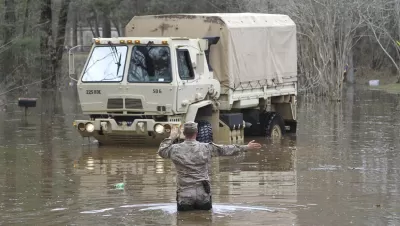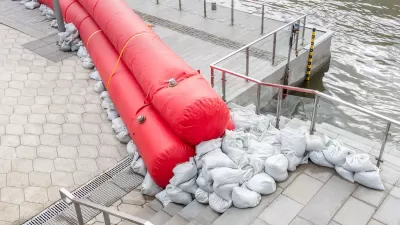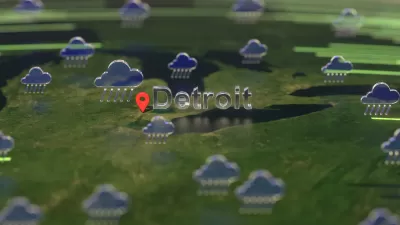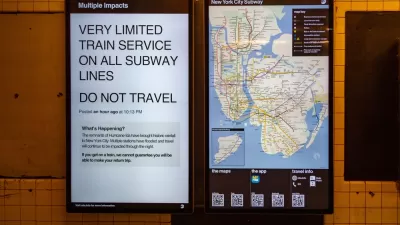The extreme weather events predicted for decades by climate scientists have been on parade in the Southern United States all year. Are we ready to say, "this is climate change"?

[Updated August 18, 2016 - the headline was updated to reflect the correct duration of time.]
"Climate change is never going to announce itself by name. But this is what we should expect it to look like," according to an article by Jonah Engel Bromwich about the recent catastrophic flooding in Louisiana.
According to the narrative built by the article, the recent floods in Louisiana are just the latest in a series of extreme events that are resetting expectations about the severity weather events. It's hard to deny that weather events are worsening in Louisiana:
The flooding in Louisiana is the eighth event since May of last year in which the amount of rainfall in an area in a specified window of time matches or exceeds the NOAA predictions for an amount of precipitation that will occur once every five hundred years, or has a 0.2 percent chance of occurring in any given year.
As Engel Bromwich notes, it's not just Louisiana facing new levels of precipitation in short bursts of extreme weather, "five other states, most of them in the South, that have experienced deadly flooding in the last 15 months, including Oklahoma, Texas, South Carolina and West Virginia." That local trend is contributing to a global fact of life, according to Engel Bromwich: "The third National Climate Assessment, released in 2014 by the United States Global Change Research Program, showed that 'the amount of rain falling in very heavy precipitation events' had been significantly above average since 1991."
FULL STORY: Flooding in the South Looks a Lot Like Climate Change

Manufactured Crisis: Losing the Nation’s Largest Source of Unsubsidized Affordable Housing
Manufactured housing communities have long been an affordable housing option for millions of people living in the U.S., but that affordability is disappearing rapidly. How did we get here?

Americans May Be Stuck — But Why?
Americans are moving a lot less than they once did, and that is a problem. While Yoni Applebaum, in his highly-publicized article Stuck, gets the reasons badly wrong, it's still important to ask: why are we moving so much less than before?

Using Old Oil and Gas Wells for Green Energy Storage
Penn State researchers have found that repurposing abandoned oil and gas wells for geothermal-assisted compressed-air energy storage can boost efficiency, reduce environmental risks, and support clean energy and job transitions.

Updating LA’s Tree Rules Could Bring More Shade to Underserved Neighborhoods
A new USC study finds that relaxing Los Angeles’ outdated tree planting guidelines could significantly expand urban tree canopy and reduce shade disparities in lower-income neighborhoods, though infrastructure investments are also needed.

California's Canal Solar Projects Aim to Conserve Resources and Expand Clean Energy
California’s Project Nexus has begun generating electricity from solar panels installed over irrigation canals, with researchers and state agencies exploring statewide expansion to conserve water and boost clean energy production.

HHS Staff Cuts Gut Energy Assistance Program
The full staff of a federal program that distributes heating and cooling assistance for low-income families was laid off, jeopardizing the program’s operations.
Urban Design for Planners 1: Software Tools
This six-course series explores essential urban design concepts using open source software and equips planners with the tools they need to participate fully in the urban design process.
Planning for Universal Design
Learn the tools for implementing Universal Design in planning regulations.
Heyer Gruel & Associates PA
City of Moreno Valley
Institute for Housing and Urban Development Studies (IHS)
City of Grandview
Harvard GSD Executive Education
Salt Lake City
NYU Wagner Graduate School of Public Service
City of Cambridge, Maryland





























